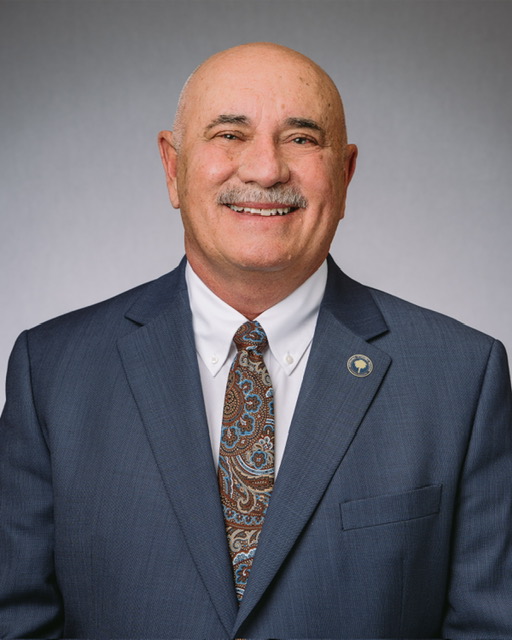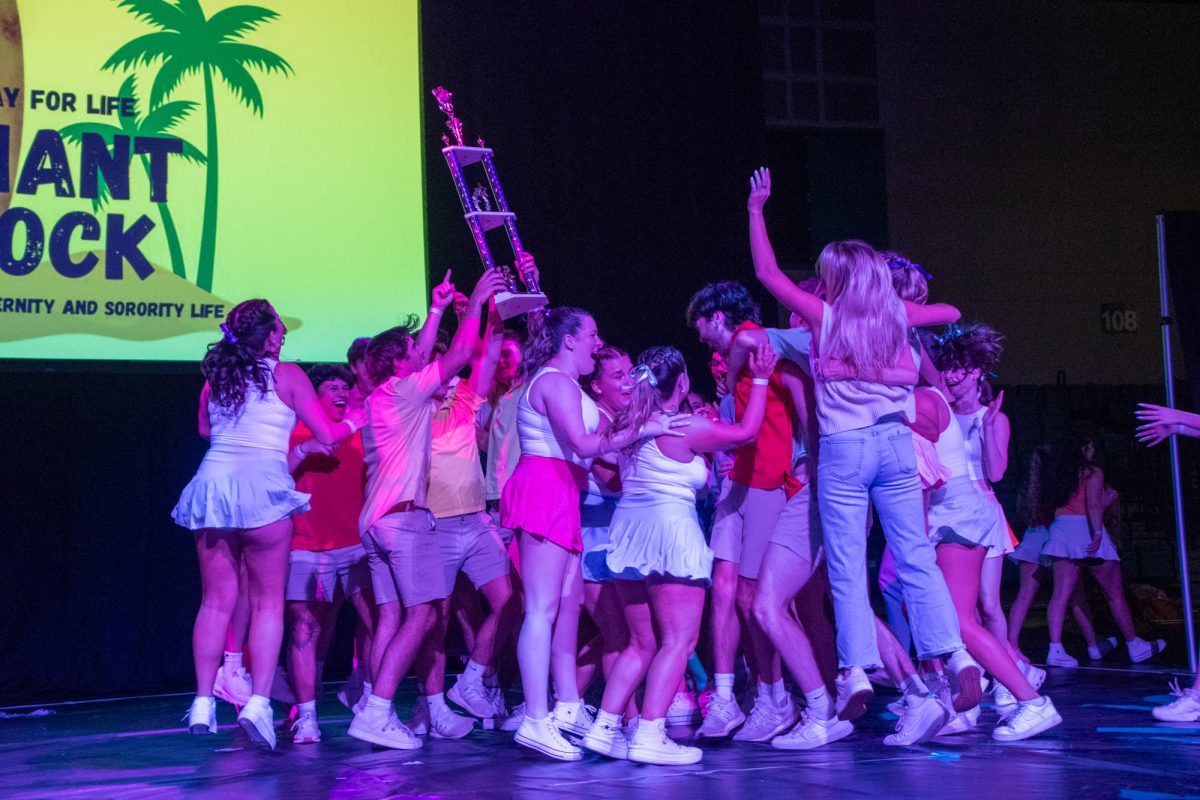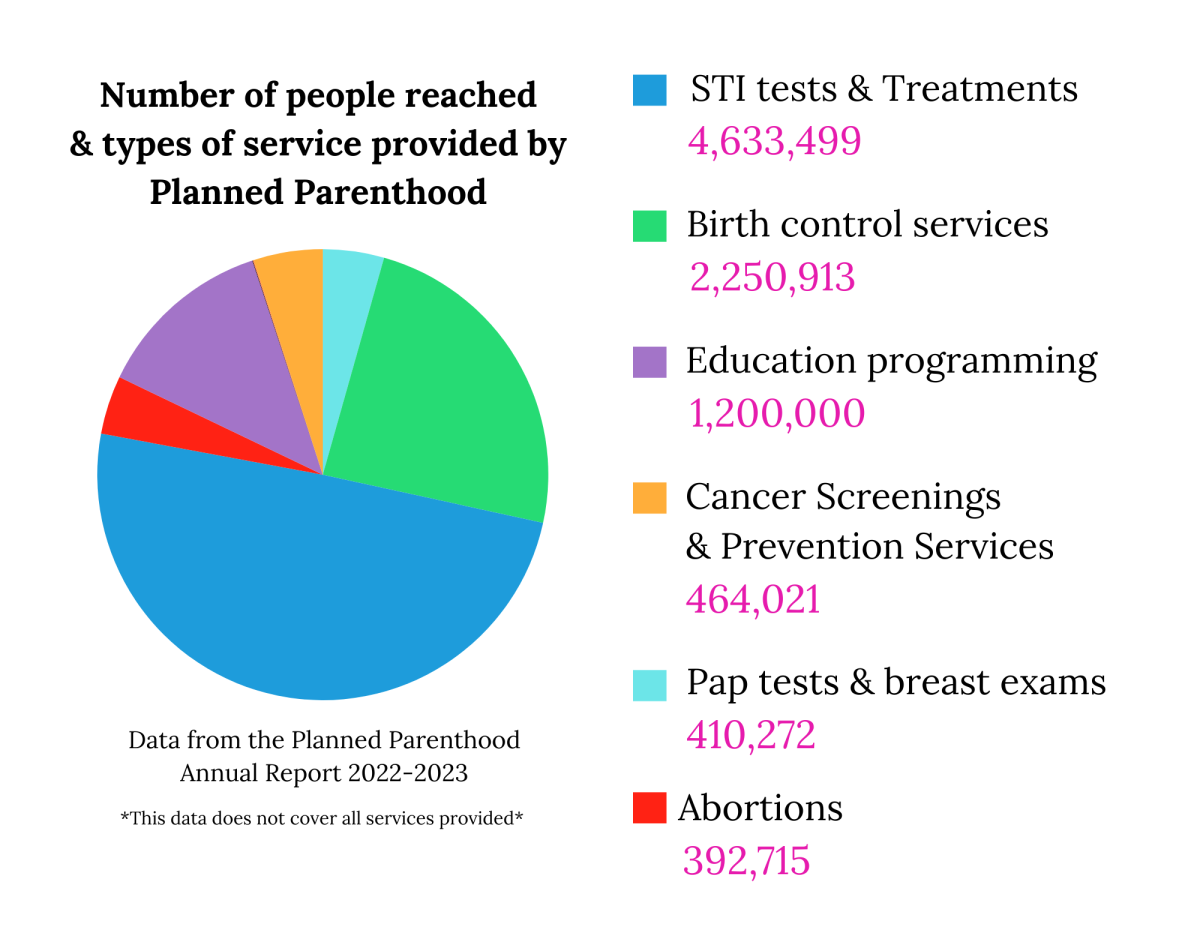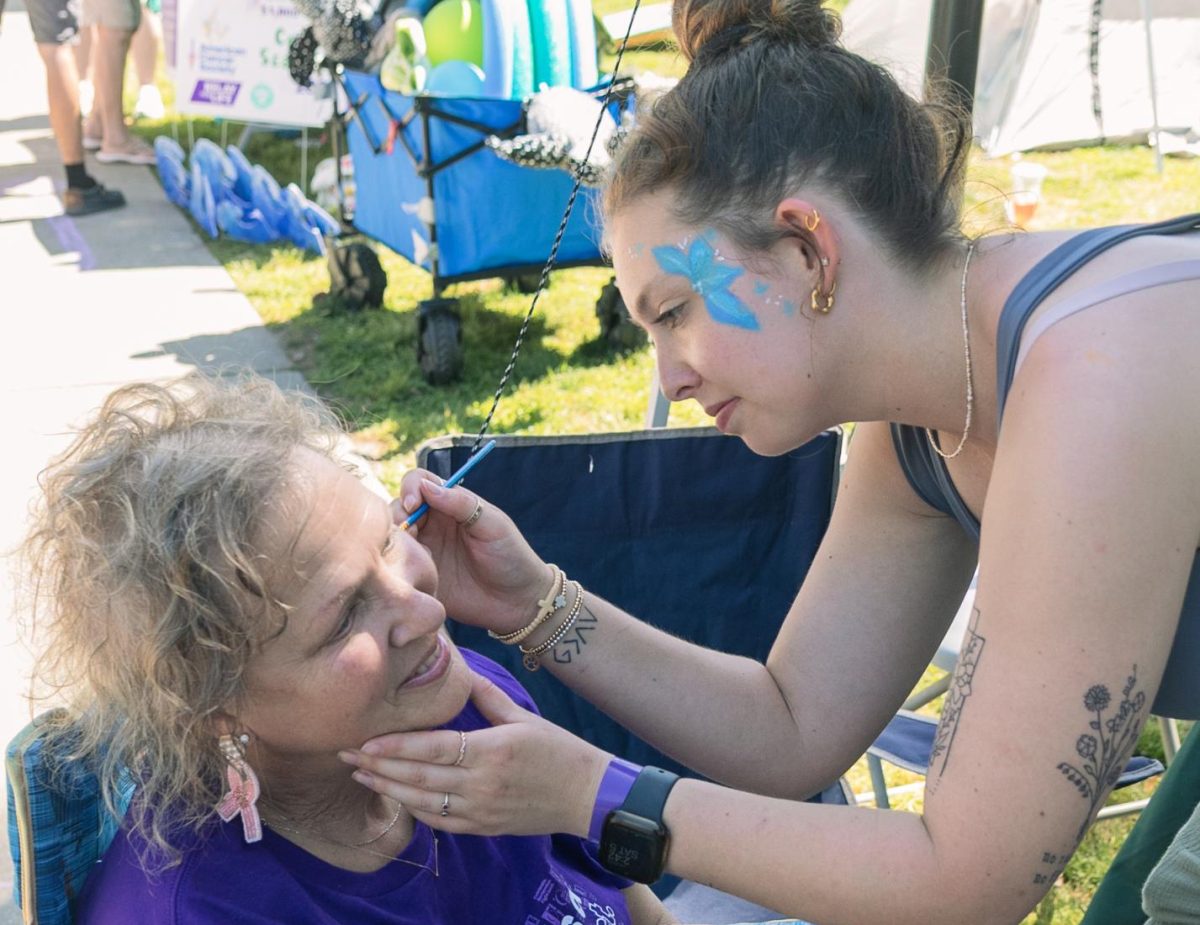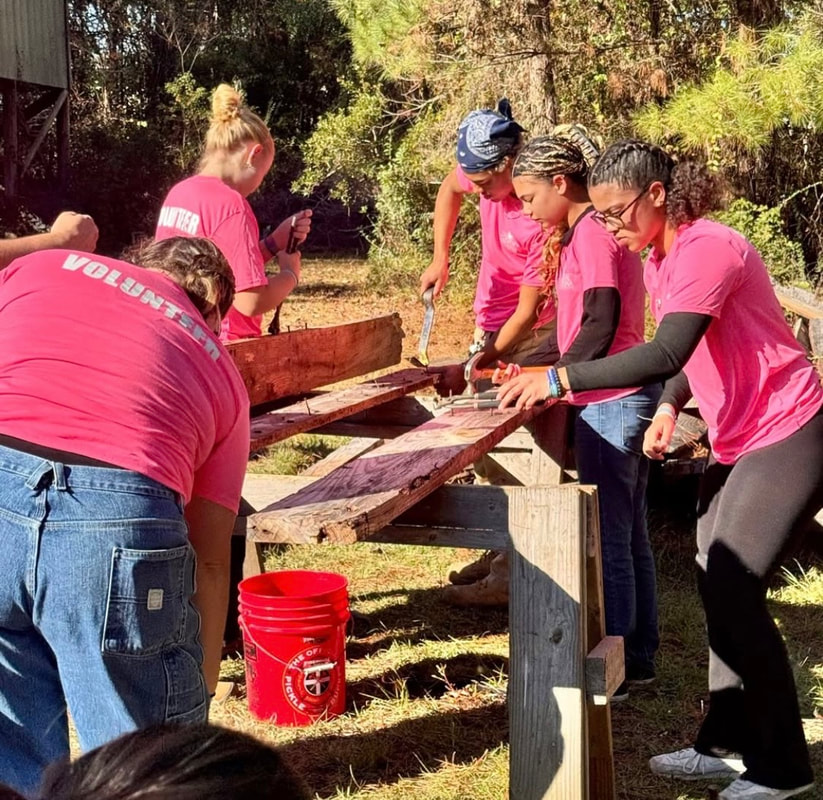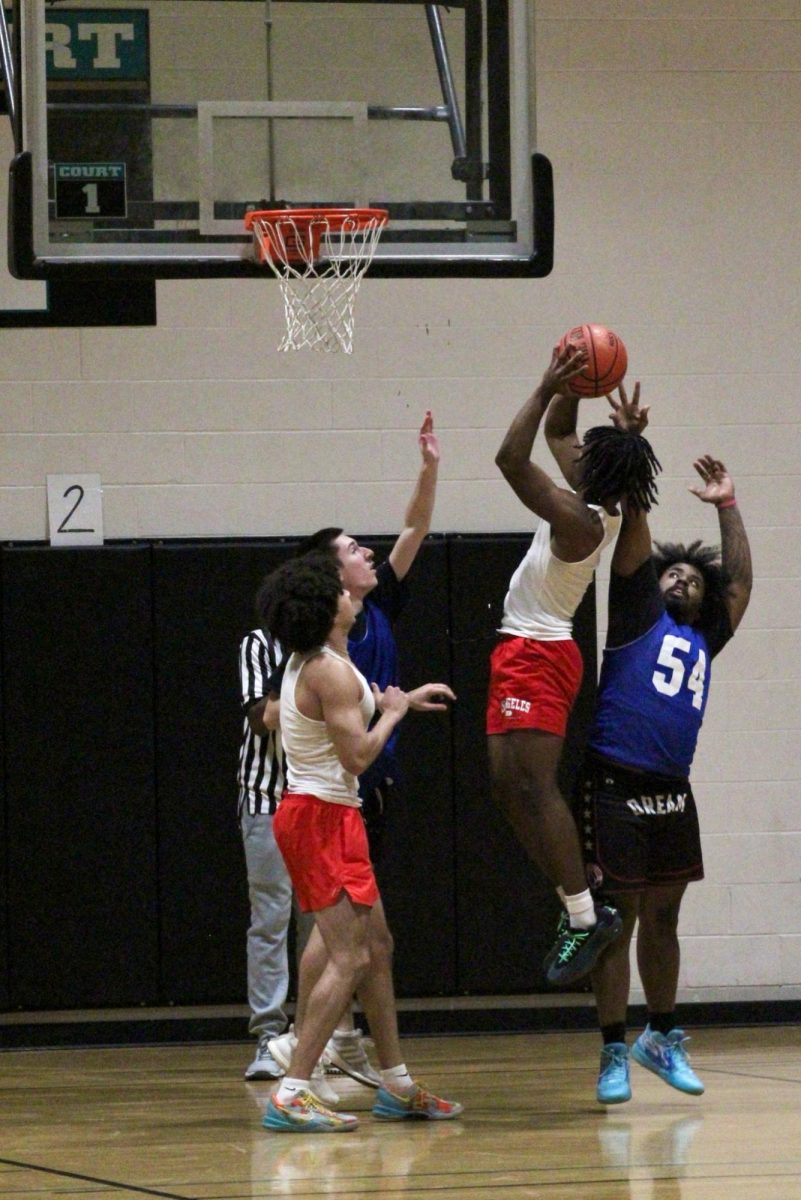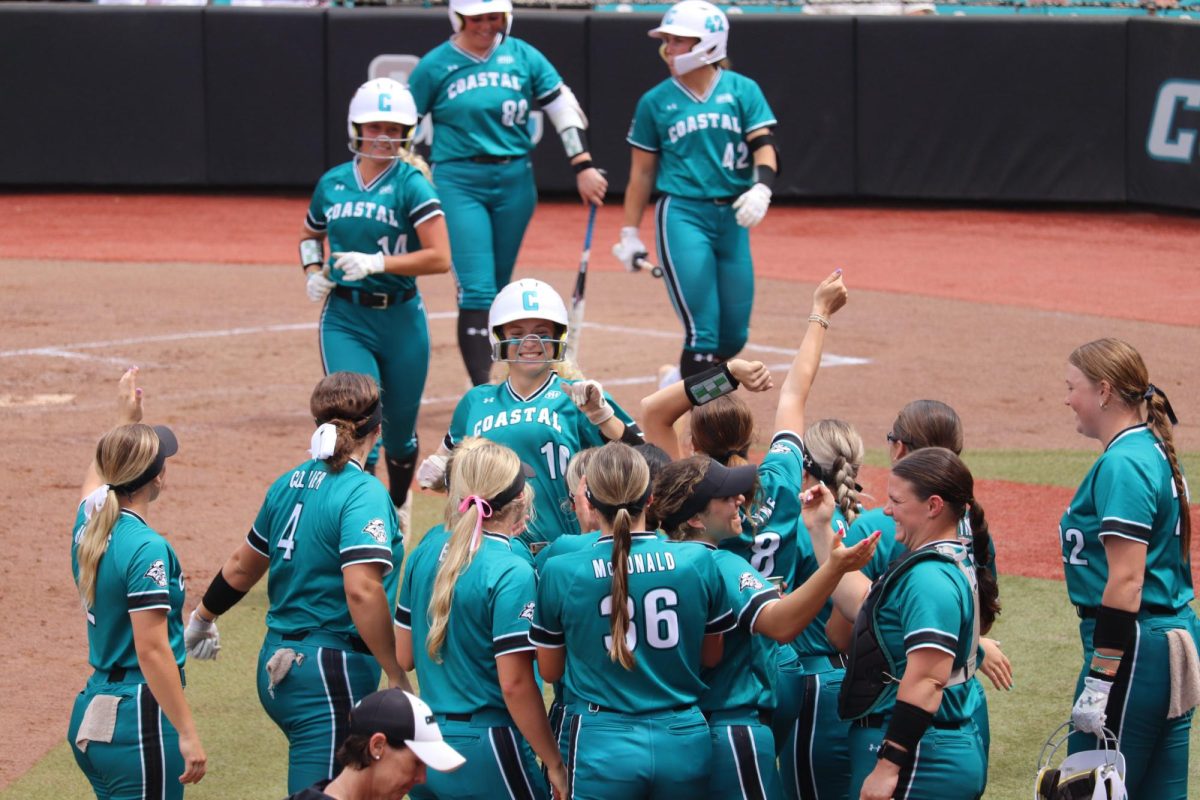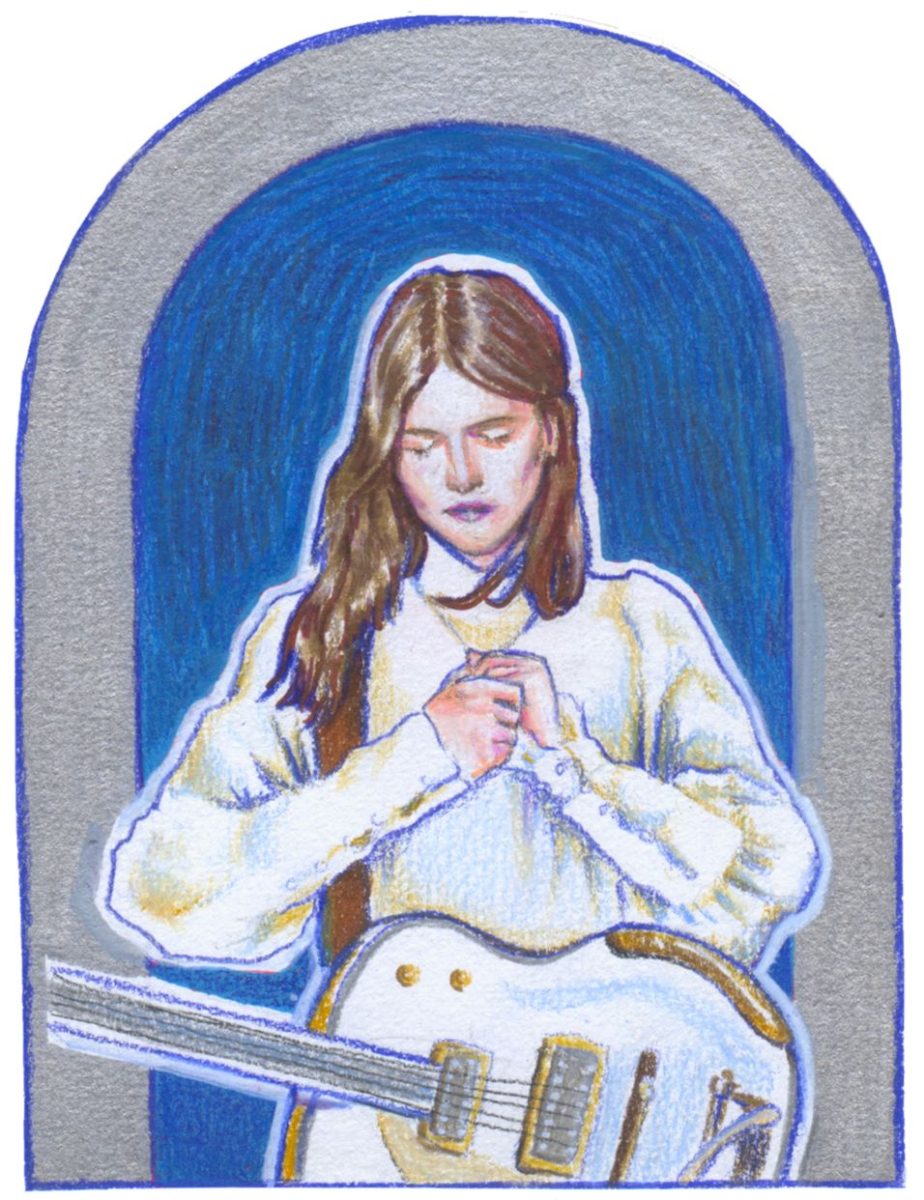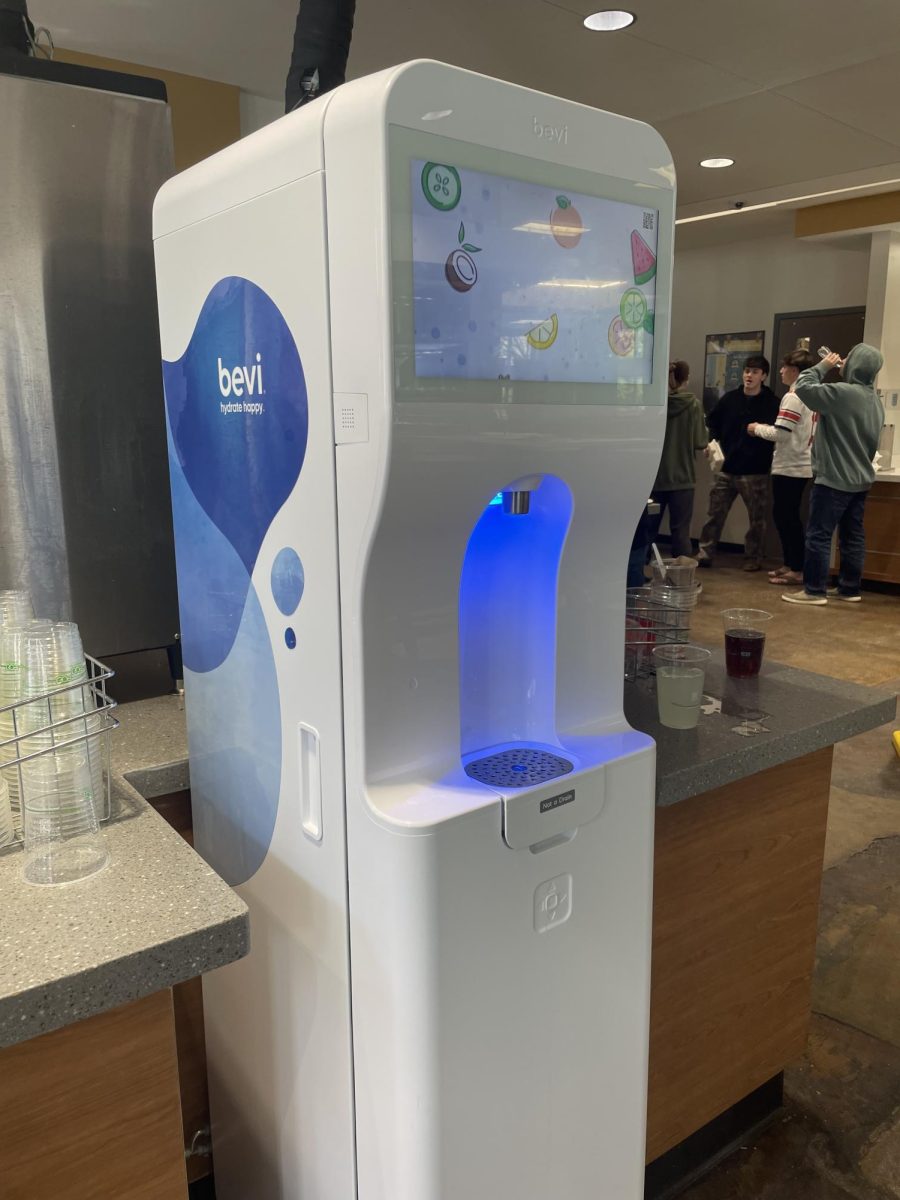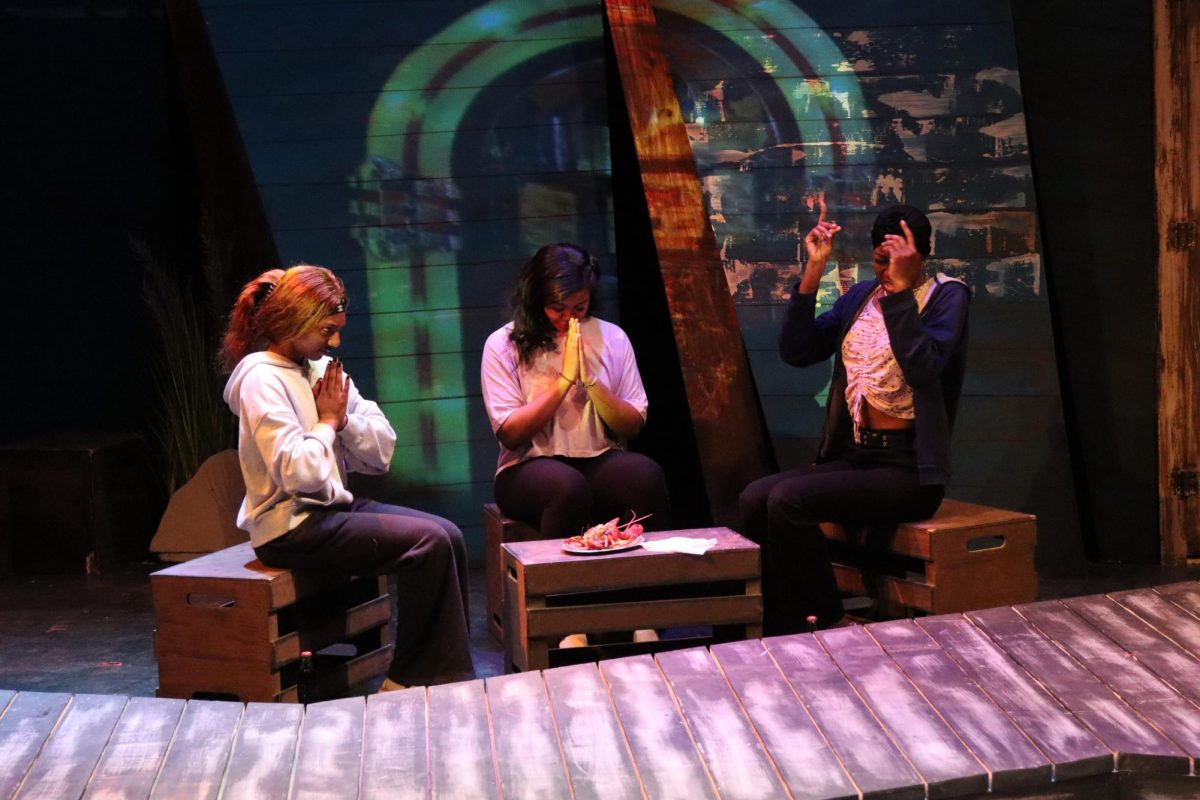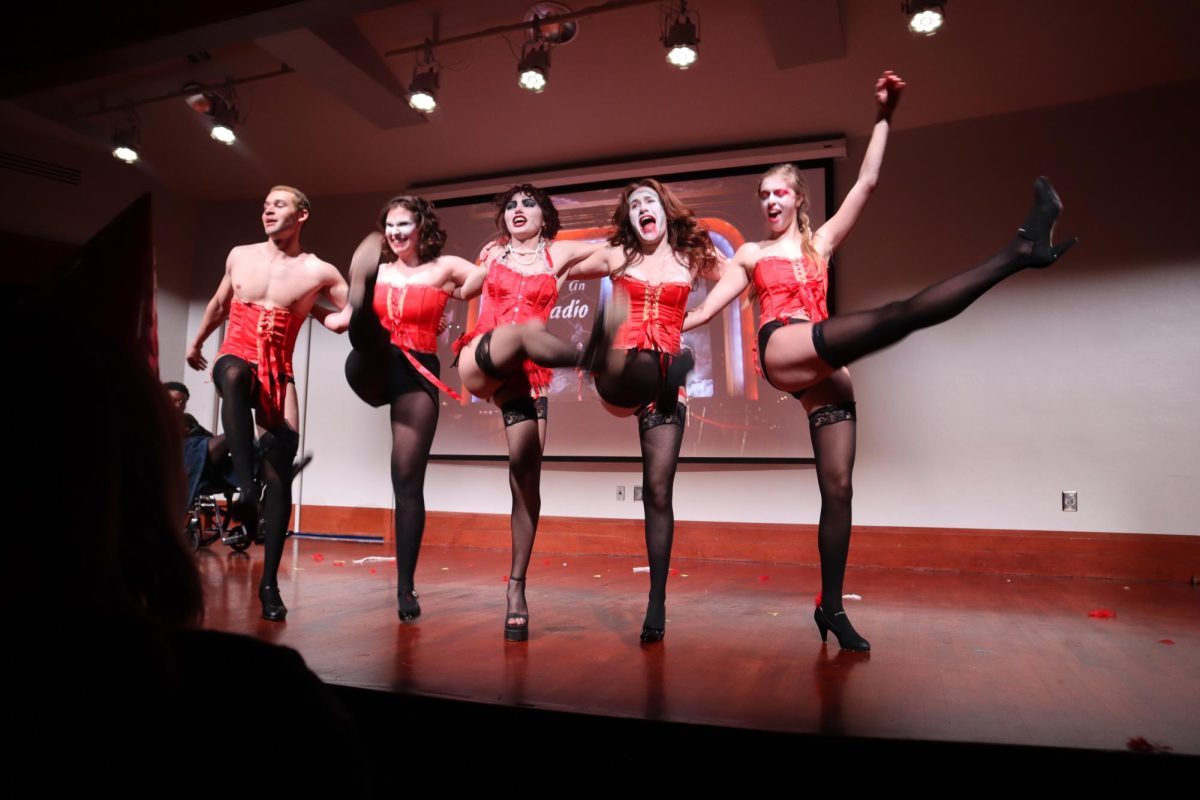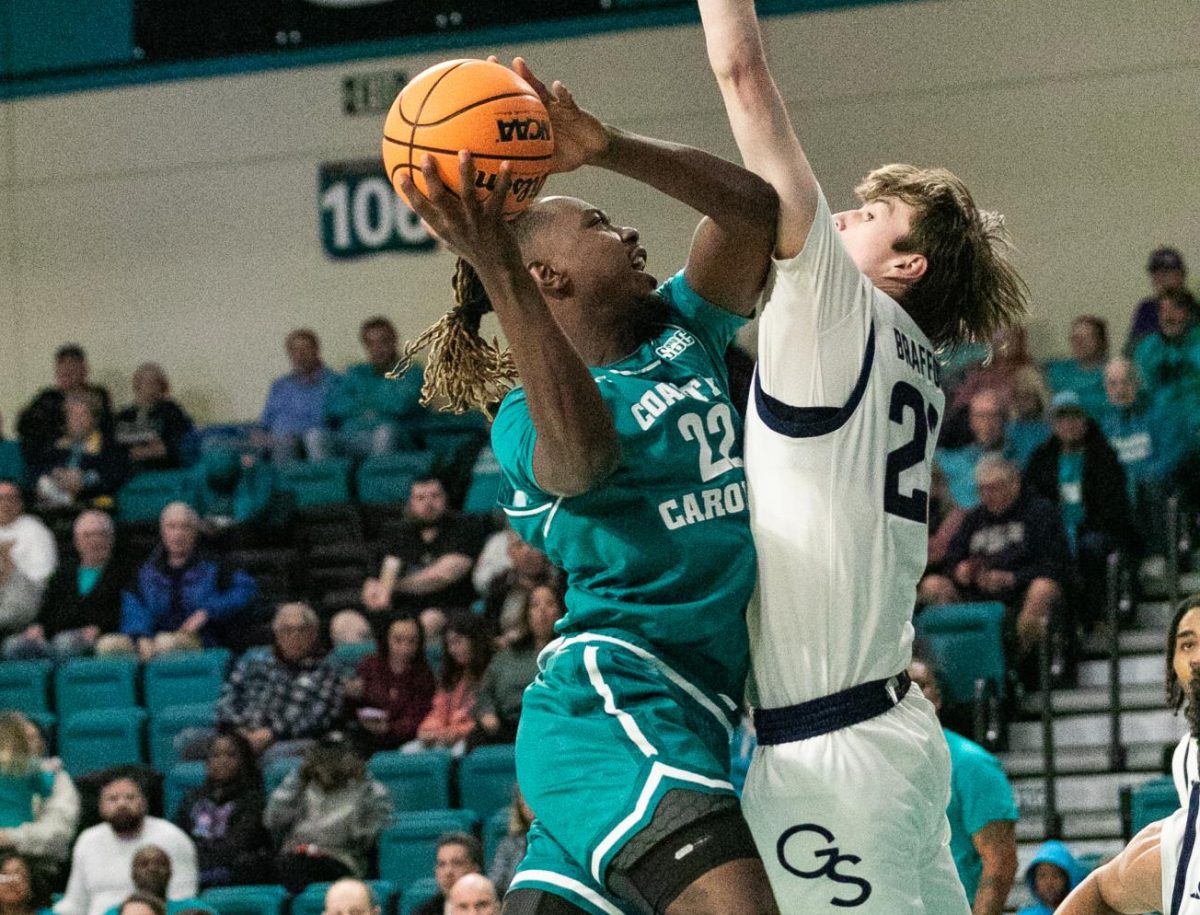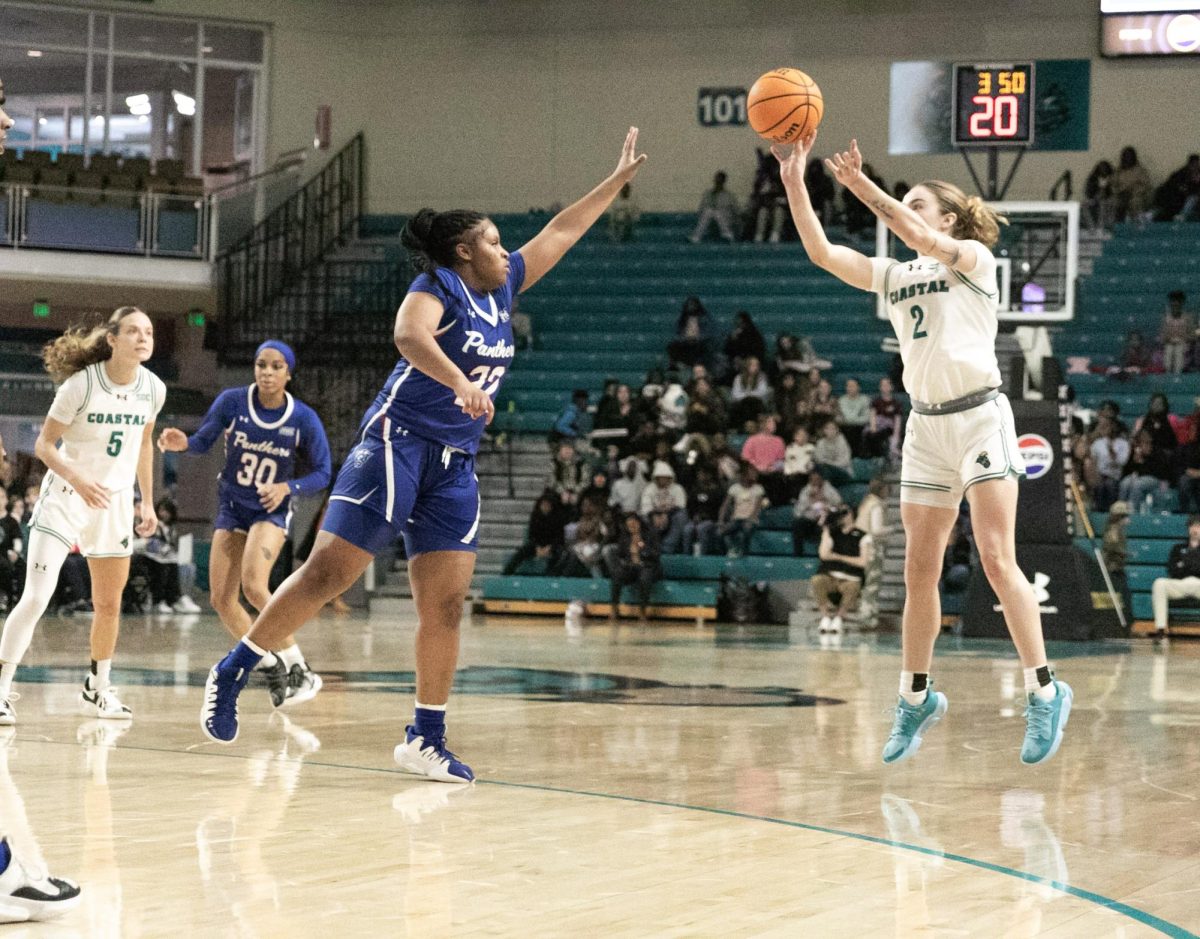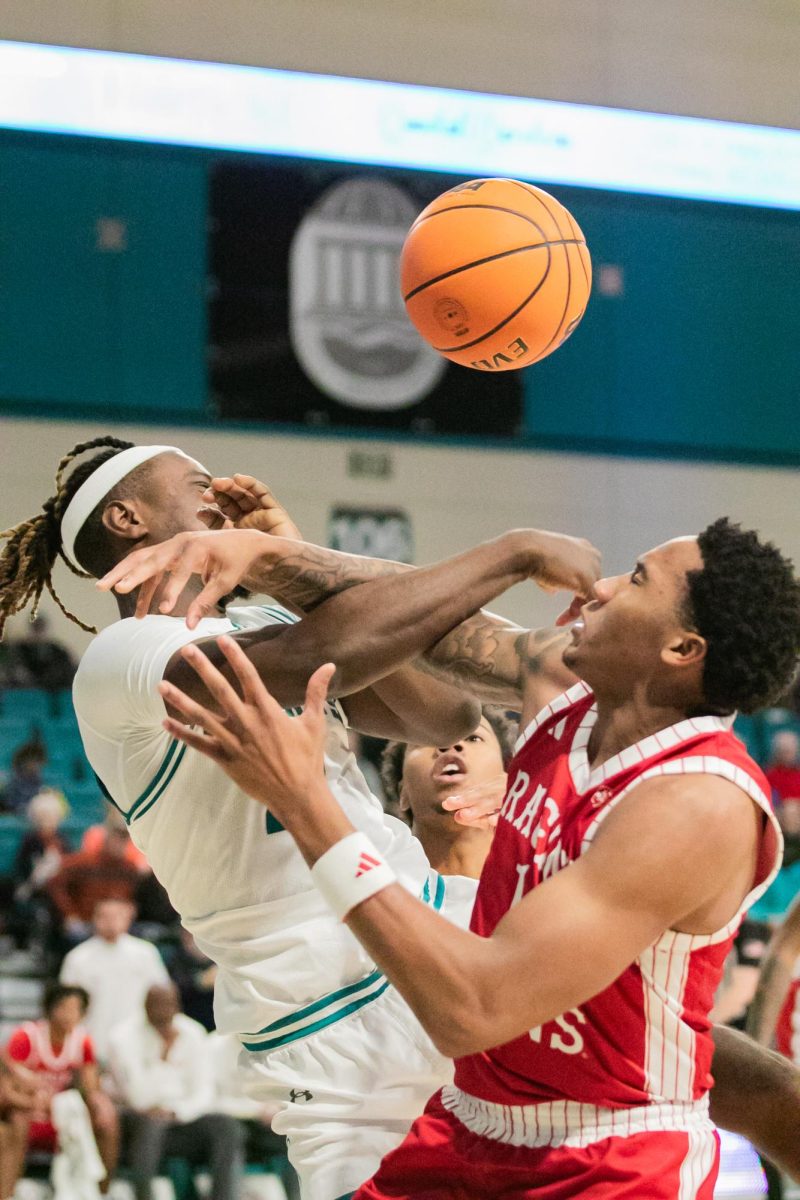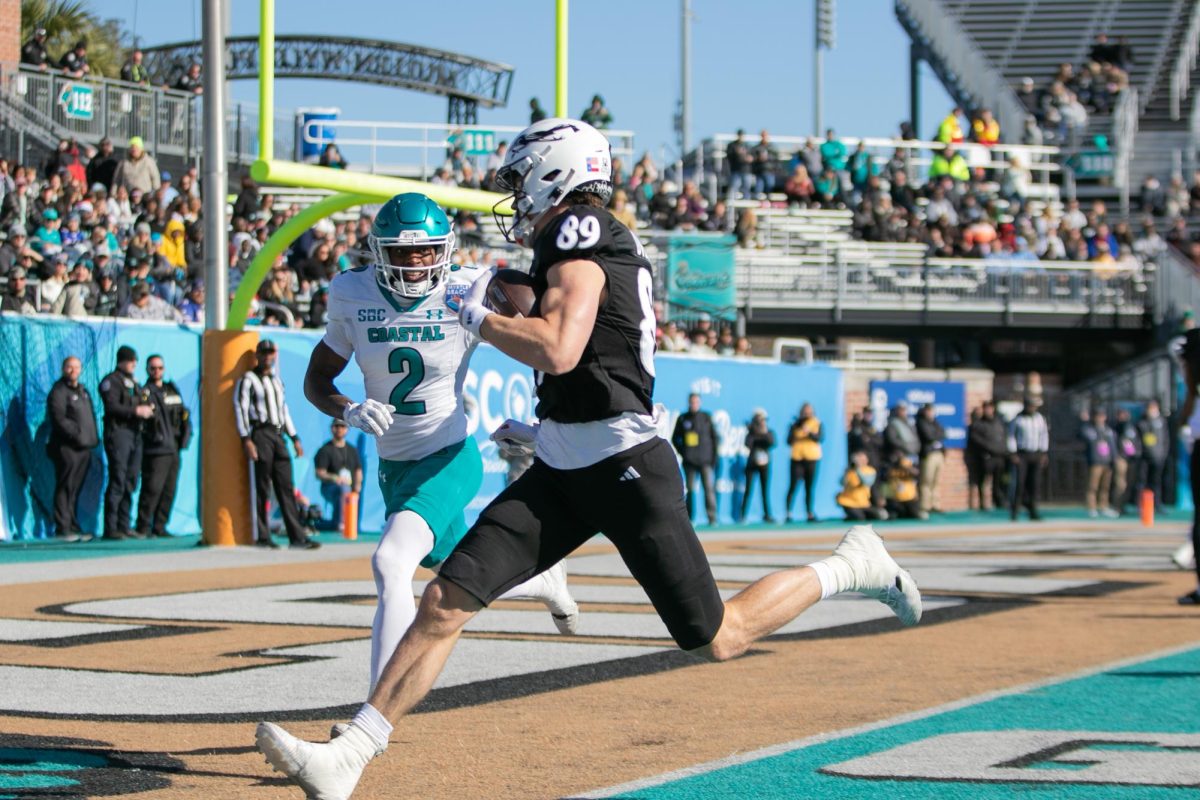Human trafficking can happen to anyone, anywhere, and students at Coastal Carolina University are especially vulnerable because of the school’s proximity to Myrtle Beach.
Chants Against Human Trafficking is an activism project produced by students of the graduate program class, Communication Activism 502, to educate and raise awareness on this issue.
Human trafficking, as defined by The Polaris Project, is the use of force, fraud, or coercion to compel a person into commercial sex acts or labor against their will. Experts on the topic warn the public of areas frequented by college students, as there have been a multitude of cases closeby including Quail Creek, Señor Frogs and The Landing at the Boathouse.
Chants Against Human Trafficking put on an event featuring esteemed panelists Betty Houbion, Deborah Breede, Ina Seethaler, Jim Smyrl and Shelbia Wiley to speak of their experience with human trafficking and the implications it may have for college students.
The panelists discussed what structures and vulnerabilities make this area especially popular for human trafficking. Homelessness, substance abuse, economic crisis, and isolation are some of the components which create vulnerable populations attractive to traffickers.
Deborah Breede, distinguished professor Emeritus, explained traffickers actively look for people that express vulnerabilities.
“I think one of the biggest vulnerabilities is not perhaps just isolation, but being alone,” Breede said. “I think it’s those types of life vulnerabilities that exist for all of us.”
According to Breede, these are often crimes of convenience and access.
Breede told a story of two students that had a personal experience with human trafficking at The Landing at the Boathouse, a popular and local bar. These students found themselves in a dangerous situation partying with new people, she said. The circumstances changed and they realized they were in danger, acting quickly enough to escape.
“Traffickers hang out at all the bars students go to,” Breede said. “One such bar that we wrote about that was very implicit [in human trafficking] was the Boathouse. Right there on the intercoastal.”
Breede said several bars popular among Coastal students, including Señor Frogs, Boathouse, and even bars along S.C. 544, have at some point been raided for human trafficking, often under the premise of liquor violations. However, Breede does make a point to mention The Boathouse is now under new ownership and has worked very hard to “clean up their act.”
Several panelists said statistics are a challenge, as human trafficking is too nuanced for numerical data points. Many cases of human trafficking go unseen because victims fear repercussions of coming forward with their stories.
Breede urges victims to report their stories.
The panelists also suggested solutions include educating audiences about the reality of human trafficking, raising awareness and working to destigmatize. Restructuring systems like homelessness and substance abuse, they said, can lessen vulnerabilities attractive to traffickers.
Graduate student Annette Peagler served on the event committee and explained students’ role in the project.
“Part of [communication activism 502], one of our final grades is to come up with an activism project,” Peagler said. “All semester long, we’ve been building this human trafficking campaign, and this has kind of been a culmination of the things we’ve learned.”
Students involved in the project broke into prospective committees to organize the event which took place during the Edwards College of Humanities and Fine Arts’ Open House Oct. 27.
“Some of the things we’ve learned is just to get into our networks and really use the relationships we’ve already made,” Peagler said. “To reach out to one another, reach out to our contacts to see who we can get to be a part of our panel.”
Graduate student Kevin Beard served on the social media committee for Chants Against Human Trafficking and was an audience member at the event. Beard had a prior interest in social work with homelessness and queer identities, and said he learned from Seethaler how interconnected queer identity, homelessness and human trafficking truly are.
Destigmatization and a better understanding of the reality of human trafficking were two major takeaways for him.
“I really learned that human trafficking is everywhere, it can be anywhere, and it can happen to anybody,” Beard said, “and just not to keep a certain profile in your head when you think of human trafficking.”
